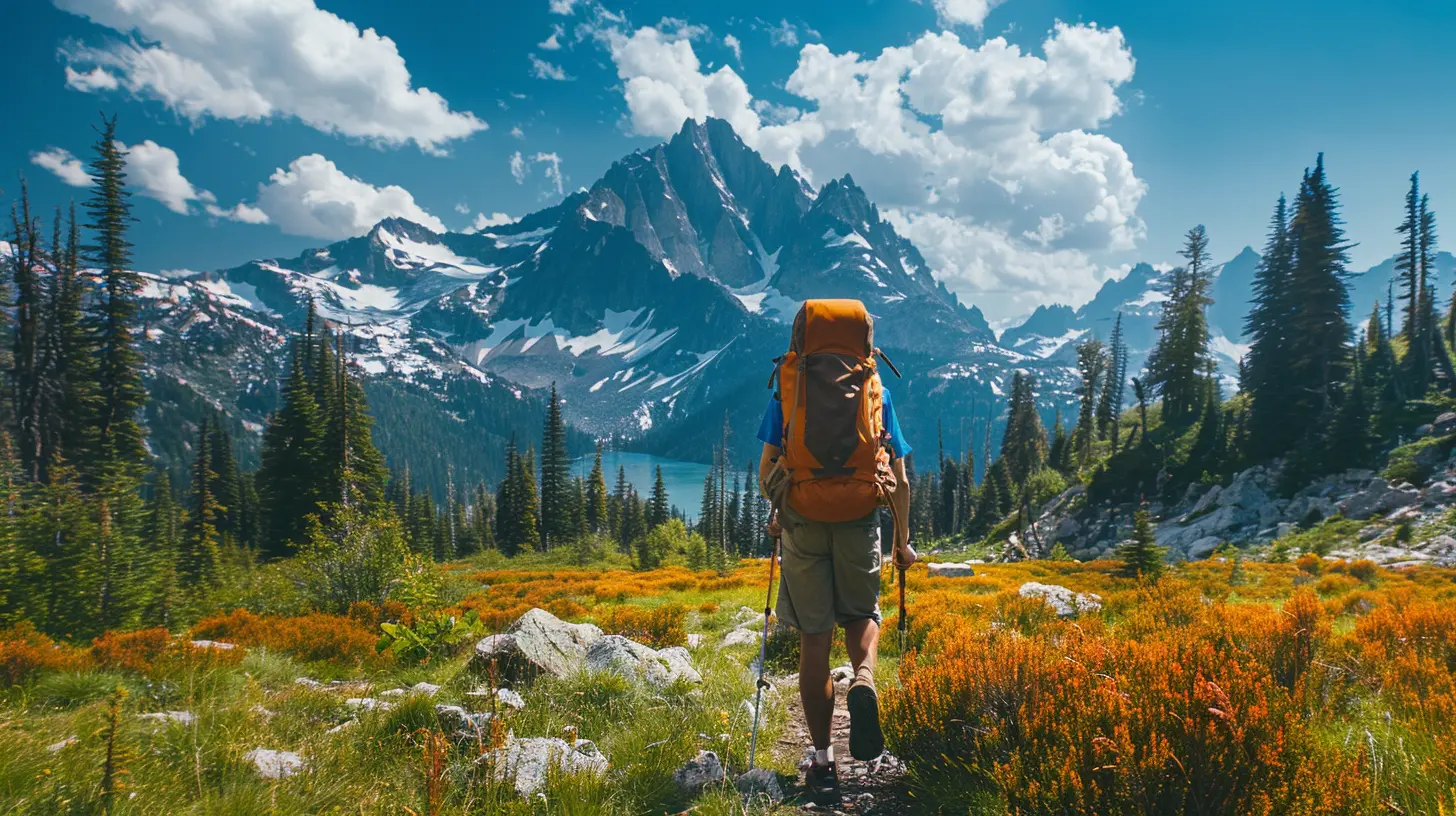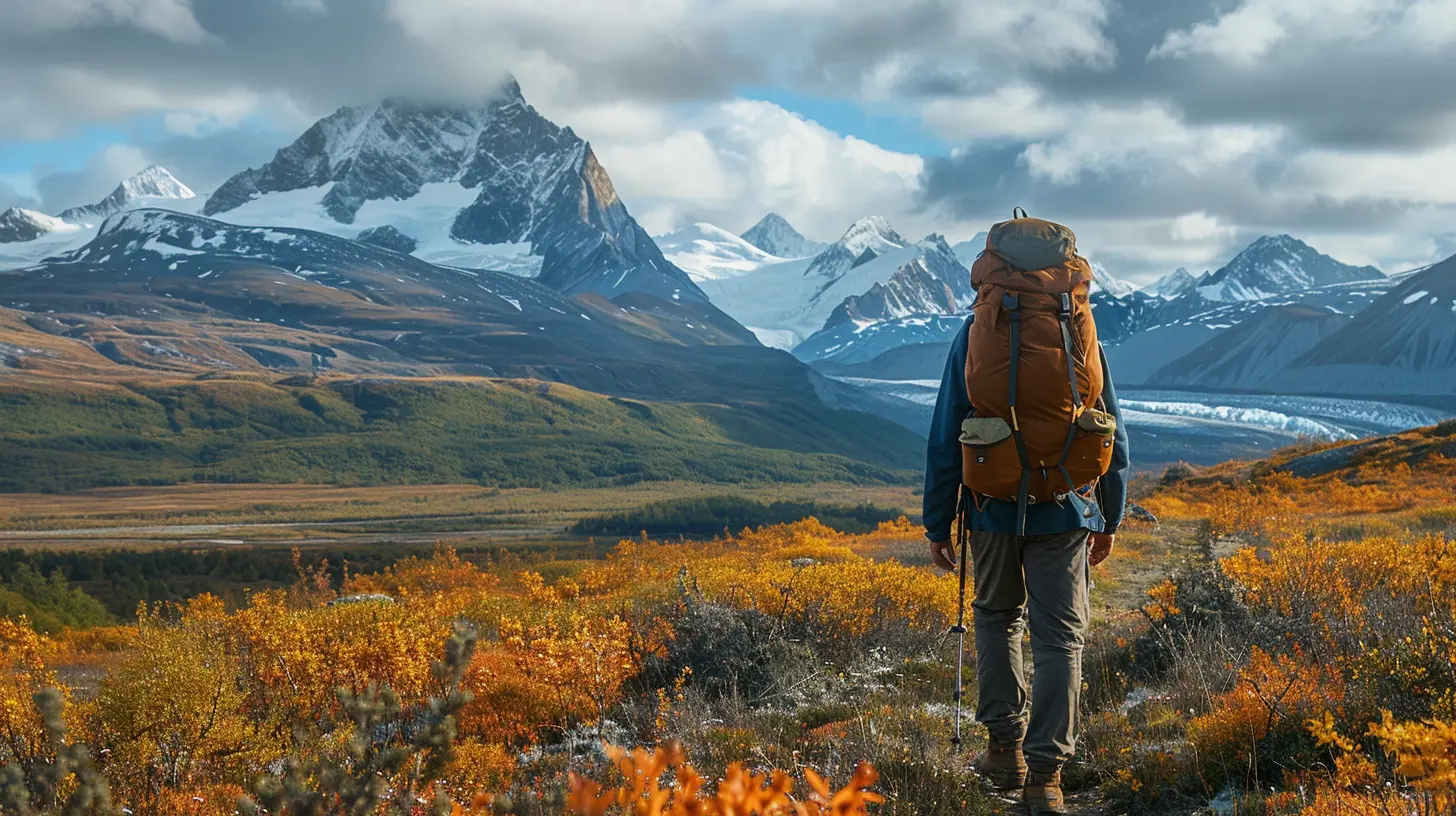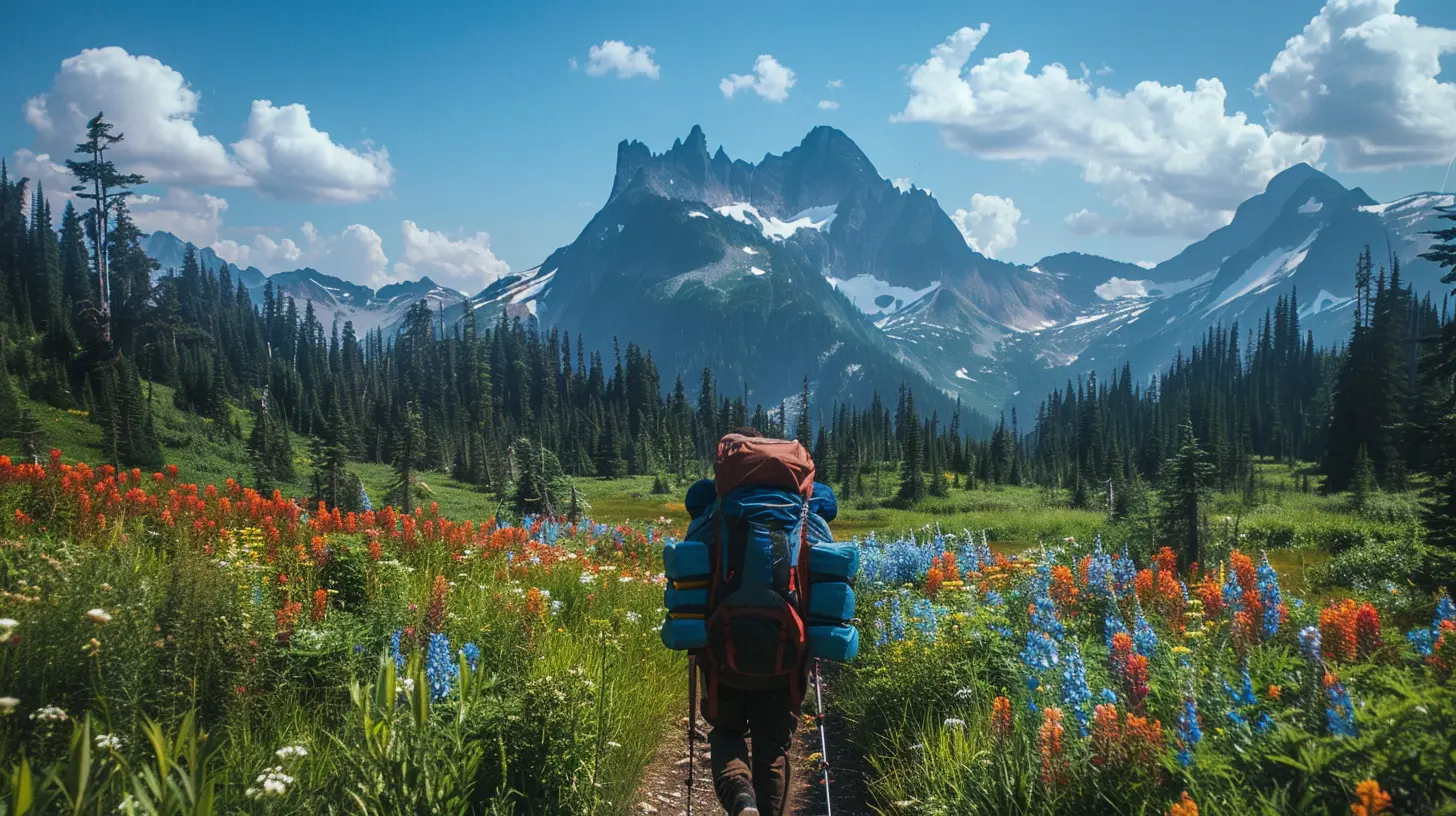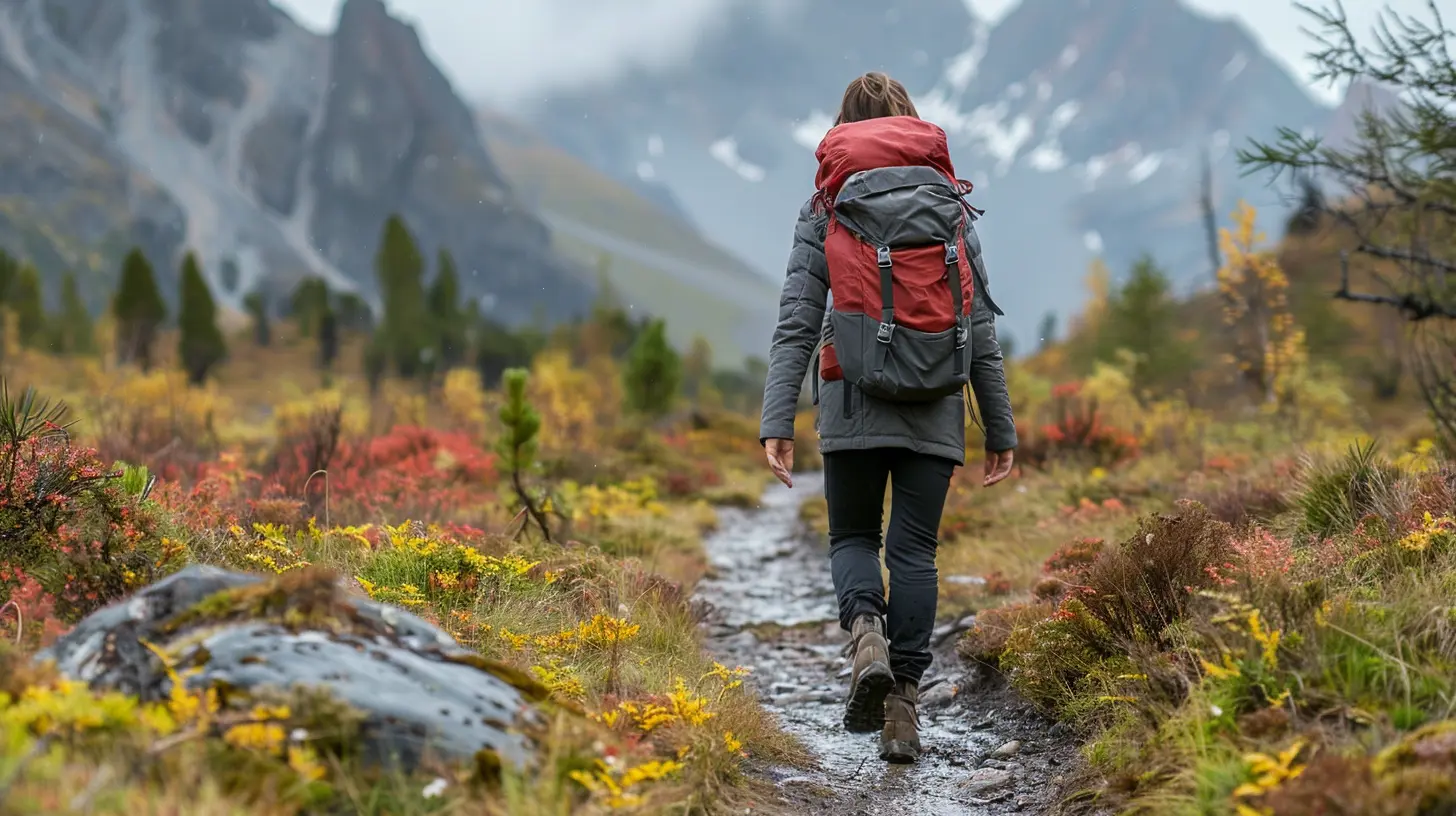Surviving and Thriving: Essential Tips for Backcountry Hiking in National Parks
5 May 2025
Backcountry hiking is a magical experience, but let’s be real—it’s not for the faint of heart. The vast wilderness, unpredictable weather, and the sheer isolation make it both exhilarating and nerve-wracking. But don’t worry! With the right mindset, preparation, and a few insider tips, you can not only survive but truly thrive on your next backcountry adventure in a national park.
Whether you're an experienced hiker or lacing up your boots for the first time, this guide will walk you through everything you need to know to ensure your hike is safe, enjoyable, and downright unforgettable.

1. Plan Like Your Life Depends on It (Because It Does)
Know Your Route Inside and Out
Before you even think about heading into the wild, study your route like you're cramming for an exam. Check trail maps, look up elevation changes, and read recent trip reports from other hikers. Familiarize yourself with alternate routes in case you need to bail due to bad weather or unexpected obstacles.Pro tip: Download an offline map on your phone and carry a physical copy. Technology is great—until your battery dies or you lose signal.
Check the Weather (and Then Check Again)
Weather in national parks can be wildly unpredictable. One minute it’s sunny; the next, you’re in the middle of a surprise snowstorm. Check forecasts repeatedly leading up to your hike, and pack layers accordingly.If the forecast looks dicey, don’t be a hero—reschedule your trip. Mother Nature doesn’t care how badly you wanted this adventure.

2. Pack Smart (and Light)
The key to a successful backcountry hike? Bringing exactly what you need—nothing more, nothing less.The Must-Have Gear List
- Navigation: Map, compass, and GPS device- Shelter: Lightweight tent, tarp, or bivy sack
- Clothing: Moisture-wicking base layers, insulating mid-layers, and waterproof outer layers
- Food & Water: High-calorie snacks, a portable stove, and a water filtration system
- First Aid Kit: Including blister treatment and an emergency whistle
- Fire Starter: Matches, lighter, and firestarter sticks
- Multi-tool or Knife: For gear repairs and other survival situations
- Bear Canister or Hanging System: Because no one wants a surprise visit from a grizzly at 2 AM
Keep Your Pack Balanced
A badly packed backpack is like wearing an uncomfortable pair of shoes—it'll slow you down and ruin your trip. Keep the heavier items close to your back and centered, with lighter gear at the top and sides. This helps with balance and reduces strain on your body.
3. Master Water and Food Strategies
Let’s be honest—backcountry hiking burns calories like crazy, and dehydration can sneak up on you fast.Drink Before You Feel Thirsty
By the time you feel thirsty, your body is already playing catch-up. Aim to sip water consistently throughout the day. A hydration bladder makes this super easy—no stopping required.Know Your Water Sources
Not all water in the wild is safe to drink. Always filter or purify water from lakes, rivers, and streams to avoid nasty surprises like giardia. A lightweight water filter or purification tablets should be in every hiker’s pack.Pack Calorie-Dense Foods
You’ll burn more calories than you think, so bring energy-dense snacks like nuts, dried fruit, jerky, and protein bars. Freeze-dried meals are lightweight and easy to prepare—just add hot water and boom, instant feast.
4. Respect Wildlife (They’re Not Disney Characters)
National parks are home to some incredible wildlife, but remember—they are wild. That cute deer might seem friendly, but getting too close could spell trouble.Follow These Guidelines
- Keep Your Distance: Stay at least 100 yards from bears and wolves, and 25 yards from everything else.- Store Your Food Properly: Use bear-proof canisters or hang food at least 10 feet off the ground and 4 feet away from tree trunks.
- Never Feed Wildlife: Human food messes with their instincts and can make them aggressive.
Bear spray is a must-have if you’re hiking in bear country. Know how to use it, and carry it where you can grab it in a split second—not buried in your pack.
5. Know Basic Survival Skills
Hopefully, your hike goes off without a hitch, but reality doesn’t always cooperate. Being prepared for emergencies can mean the difference between a minor inconvenience and a life-threatening situation.Brush Up on These Essentials
- How to Navigate Without GPS: If your phone dies, can you still find your way?- How to Build an Emergency Shelter: If bad weather hits and you can’t make it to camp, knowing how to use a tarp or natural materials to create a shelter is crucial.
- How to Signal for Help: Three of anything—whistle blasts, flashes of light, or even stacked rocks—signals distress.
6. Leave No Trace (Seriously, Don’t Be That Person)
Backcountry hiking is a privilege, and keeping the wilderness pristine is everyone’s responsibility. Follow the Leave No Trace principles to minimize your impact.The Basics of LNT
- Pack It In, Pack It Out: If you brought it with you, take it back.- Stay on Trails: Avoid cutting switchbacks or trampling vegetation.
- Use Biodegradable Soap: If you need to wash dishes or yourself, do it at least 200 feet away from water sources.
- Respect Other Hikers: Keep noise levels down and give uphill hikers the right of way.
7. Listen to Your Body
Backcountry hiking isn’t a race; it’s about the journey. Pay attention to how you’re feeling and don’t push yourself to exhaustion.Watch for These Warning Signs
- Dehydration: Dizziness, dark urine, and muscle cramps- Altitude Sickness: Headaches, nausea, and shortness of breath—descend if symptoms persist
- Hypothermia: Shivering, confusion, and exhaustion mean it’s time to warm up ASAP
8. Embrace the Experience
Sure, backcountry hiking comes with challenges, but that’s what makes it so rewarding. The solitude, the towering peaks, the untouched beauty of the wilderness—you won’t find that anywhere else.Take it all in. Breathe the crisp air, stare at the endless sky, and soak in the moment. Because when you’re deep in the backcountry, far from the rush of everyday life, you’ll realize something incredible—you’re not just surviving out here, you’re thriving.
all images in this post were generated using AI tools
Category:
National ParksAuthor:

Reed McFadden
Discussion
rate this article
4 comments
Azriel Mendoza
Preparation fosters unforgettable experiences.
May 11, 2025 at 4:22 PM

Reed McFadden
Absolutely! Proper preparation enhances safety and enjoyment, ensuring you make the most of your backcountry adventures.
Astra McKee
This article provides valuable insights for anyone venturing into the backcountry. The practical tips on preparation, safety, and respect for nature are essential for a successful hike. A must-read for both novice and experienced hikers alike!
May 10, 2025 at 4:23 AM

Reed McFadden
Thank you for your kind words! I'm glad you found the tips helpful for both new and seasoned hikers. Happy adventuring!
Zachary Hamilton
Great tips! Proper preparation is key for backcountry hiking. Respect nature and always prioritize safety. These insights will definitely enhance any outdoor adventure! Happy hiking!
May 7, 2025 at 3:52 PM

Reed McFadden
Thank you! I'm glad you found the tips helpful. Happy hiking and stay safe out there!
Izaak Davis
Embrace the freedom of the great outdoors! Backcountry hiking in national parks offers a unique adventure that connects you with nature and yourself. Remember, each step taken is a step toward personal growth. Equip yourself with knowledge and embrace the wild – your journey awaits!
May 6, 2025 at 3:34 PM

Reed McFadden
Thank you for capturing the spirit of backcountry hiking! Embracing nature truly fosters personal growth and adventure. Happy trails!



